
- Appointments
- Awards
- Books & Authors
- Committees
- Deaths
- Defence
- Economic
- Environment
- Finance
- Important Days
- International
- Miscellaneous
- National
- Persons in NEWS
- Places in NEWS
- Regional
- Reports
- Resignations & Retirements
- Science & Technology
- Sports
- December 2016 - Exams Resources
- Current Affairs - Quiz
- Current Affairs - Test
- Current Affairs - PDF
Current Affairs Dec 2016 - Environment
News 1 - Pacific Fisher, a rare species of weasel, makes a comeback
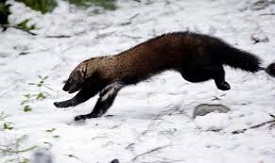
A weasel-like mammal (fisher) was recently spotted in the thick forest of Mount Rainier National Park, Washington. It had been missing for around 70 years. Ten Pacific fishers were set free at the park. Fishers were listed as state endangered species in 1998.
The fisher is a small carnivorous mammal native to North America. It is a member of the weasel family. Fishers have been trapped since the 18th century for their fur.
News 2 - Rajiv Gandhi Airport achieves carbon neutral status

Airports Council Internationals Airport Carbon Accreditation program certified Hyderabads Rajiv Gandhi International Airport with Level 3+, Carbon Neutrality status. Hyderabads international airport is the first in the Asia-Pacific region under 5-15 million passengers per annum category to attain this status.
The Airport Carbon Accreditation program is an industry standard for assessment of airports' efforts to manage and reduce carbon emissions.
News 3 - Atlantic Killifish resistant to toxic waste 8,000 times discovered
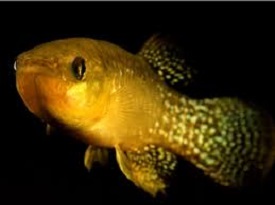
Atlantic Killifish adaptable to environmental change has evolved to be 8,000 times more adaptable to toxic waste as compared to normal fish. Scientists have found that Killifish lives in the highly polluted East Coast Estuaries of the USA. As per the ecologists, fish acts as an indicator species in polluted environments.
The Killifishs advantage is the diversity of its genes, allowing them to survive the radically change of mutations and live in polluted sites have been contaminated by a mixture of industrial plants.
News 4 - Scientists found presence of ammonia in upper Troposphere
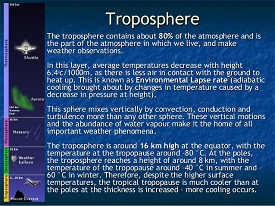
German researchers have found a presence of ammonia in the Troposphere, the lowest atmospheric layer of Earth. These findings were based on analyzed satellite data collected from various parts of the troposphere between June 2002 to April 2012. Agricultural emissions from livestock farming and fertilization released ammonia into the atmosphere, which finally ends up into the monsoon as the NH3 creates a cooling effect.
The ammonia concentration was up to 33 pptv above Southeast China and North India. It has been assumed by Scientists that ammonia may help to mitigate the effects of global warming.
News 5 - Rio enters the UNESCO World Heritage Status

Rio de Janeiro has officially entered the UN's list of world heritage sites in recognition of its soaring granite cliffs, urban rainforest and beaches.
The city is nicknamed the Marvelous City. The city of Rio de Janeiro lies in the narrow strip of alluvial plain between Guanabara Bay and the Atlantic Ocean.
The development of the city of Rio de Janeiro has been shaped by a creative fusion between nature and culture.
News 6 - NGT imposed interim nationwide ban on Manja for flying kites

The National Green Tribunal imposed an interim nationwide ban on use of glass-coated Manja for flying kites as the sharp string poses a danger to humans, animals and birds. The bench was headed by NGT Chairperson Swatanter Kumar.
The order came in response to a petition by People for the Ethical Treatment of Animals - India, which called for a nationwide ban on all kinds of sharp kite strings.
News 7 - Majuli set to become the countrys first ever carbon neutral district
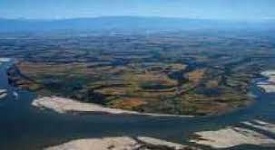
The State Government of Assam has launched Sustainable Action for Climate Resilient Development in Majuli (SACReD, Majuli) to make the river island of Majuli as the countrys first ever Carbon Neutral district by 2020.
This project has been initiated by Assams Department of Environment and Forest to combat climate change and reduce greenhouse gas emissions. SACReD, Majuli project is part of the French Development Agency assisted Assam Project on Forest and Biodiversity Conservation (APFBC).
News 8 - Huge Dead Zone discovered in the Bay of Bengal
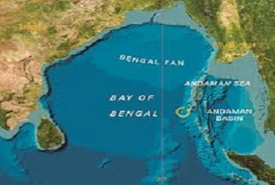
Scientists have discovered a huge Dead Zone of an estimated 60,000 square kilometers in the Bay of Bengal. A dead zone is an area that contains little or no oxygen and supports microbial processes that remove vast amount of nitrogen from the ocean. The study was published in Nature Geosciences.
These Dead Zones are popular off the western coasts of North and South America, off the coast of Namibia and off the west coast of India in the Arabian Sea.
News 9 - Scientists discover 163 new species in the Greater Mekong region
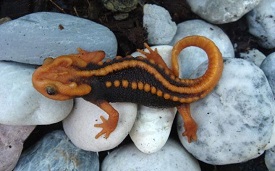
A report by the World Wildlife Fund (WWF) revealed that scientists have discovered 163 new species (3 mammals species, 9 amphibians, 11 fish, 14 reptiles and 143 plants) in the Greater Mekong region of the Southeast Asia. These species were discovered in Cambodia, Laos, Vietnam, Myanmar and Thailand.
These discoveries included a rainbow-headed snake, a three-centimeter long frog, a gecko etc. The Greater Mekong is home to some of the world's most endangered species.